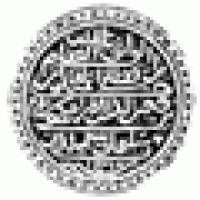
แนวคิดว่าด้วย "ความยุติธรรม" ในอิสลาม
จากตำรา ISlAM AND SECULARISM (อิสลามและฆราวาสนิยม) โดย ศ.ซัยยิด มูฮัมหมัด นาฆิบ อัล อัตตาส
The concept of JUSTICE in Islam
from "ISlAM AND SECULARISM "Book
by Prof. Syed Muhammad Naquib Al-Attas
"ความยุติธรรม" หมายถึง สภาพการณ์(เงื่อนไข)และสถานการณ์โดยทั่วไป ซึ่งทำให้เขาดำรงอยู่ในสถานที่
ที่ถูกต้อง และเหมาะสม
'สถานที่' ในที่นี้หมายถึง ไม่เพียงแต่ที่เกี่ยวข้องกับสถานการณ์ทั้งหมดของเขาในความสัมพันธ์กับคนอื่นๆ
แต่ยังรวมถึงสภาพการณ์(เงื่อนไข)ของเขาในความสัมพันธ์กับตัวของเขาเองอีกด้วย
ดังนั้น แนวคิดเกี่ยวกับความยุติธรรมในศาสนาอิสลามจะมีผลต่อสถานการณ์แห่งความสามัคคี และความเท่าเทียมระหว่างบุคคลคนหนึ่งกับอีกฝ่ายหนึ่ง
หรือระหว่างสังคมกับรัฐ
หรือระหว่างผู้ปกครองกับผู้ถูกปกครอง
หรือระหว่างกษัตริย์กับพสกนิกรของพระองค์
แต่มีความกว้างขวางอย่างลึกซึ้งและมีความเป็นพื้นฐานสำคัญ
ดังนั้น(ความยุติธรรม)ถูกอ้างอิงถึงความเป็นหลักการพื้นฐานในด้านความสัมพันธ์ ความสามัคคี และความถูกต้อง ความสมดุลระหว่างเพื่อนมนุษย์กับตัวเขา และในระดับรองลงมา คือระหว่างเขากับคนอื่นๆ หรือผู้อื่น ระหว่างเขากับเพื่อนร่วมงานของเขา และเขากับผู้ปกครอง กษัตริย์ รัฐ และสังคม
ดังนั้นกับคำถามที่ว่า : "คนหนึ่งจะสามารถอธรรมต่อตนเองได้หรือ?" เรามีคำตอบในการยืนยันเพิ่มเติมว่า ความยุติธรรมและความอยุติธรรม เริ่มต้นและจบลงที่ตนเอง
อัลกุรอานได้เน้นย้ำถึงประเด็นนี้ว่า เมื่อเขาทำผิดเขาก็อธรรม (Zalim) ต่อตัวเอง และความอยุติธรรม (Zulm) ดังกล่าว เป็นเงื่อนไขที่กระทำโดยมนุษย์ ที่กระทำบนตัวของเขาเอง.
เพื่อทำความเข้าใจเรื่องนี้ เราจึงต้องพินิจถึงพันธสัญญาทางจิตวิญญาณ(ของเรา)ที่มีต่อพระเจ้าอีกครั้ง และความเชื่อที่ว่าธรรมชาติของมนุษย์มีลักษณะทวิลักษณ์ คือ ดวงวิญญาณและร่างกายของเขา
มนุษย์ที่แท้จริงเท่านั้น ที่จะสามารถเป็นผู้มีจิตวิญญาณที่มีเหตุมีผลได้.....
ที่มา: ISlAM AND SECULARISM (1993) P. 76-77.
ปล. แด่ 2 ตายายเก็บเห็ด ที่ทำให้วิญญูชนแห่งสยามประเทศและปาตานีดารุสสลามหลายคนถามหา
"ความยุติธรรม"
Sad but true/ And Justice for All : 6 Shahban 1438.
เรียบเรียงจาก
....With respect to man, we say that justice means basically a condition and situation whereby he is in his right and proper place. 'Place' here refers not only to his total situation in relation to others, but also to his condition in relation to his self.
So the concept of justice in Islam does refer to relational situations of harmony and equi- IIbnum eXlstmg between one person and another, or between the society and the state, or between the ruler and the ruled, or between the king and his subjects, but far more profoundly and fundamentally so it refers in a primary way the harmonious and rightly-balanced relationship exis- tmg between the man and his self, and in a secondary way only to such as exists between him and another or others between him and his fellow men and ruler and king and state and society.
Thus to the question: "Can one be unjust to one's self?" we answer in the affirmative, and add further that justice and injustice indeed begins and ends with the self. The Holy Qur'an repeatedly stresses the point that man, when he does wrong, is being unjust (z,iilim) to himself, and that injustice (:z;ulm) is a condition wrought by man upon his self.sl
To understand this we have to refer once again to the soul's Covenant with God and to the belief that man has a dual nature in respect of his two souls and body. The real man can only in fact be his rational soul.
From: ISlAM AND SECULARISM (1993) P. 76-77.
WalLahua`lam / อัลลอฮทรงรู้ยิ่ง (ข้าฯรู้เพียงน้อยนิด)


